Introduction

For the better part of the last three decades, Suzuki and Yamaha have been locked in a fierce battle. 100cc two-strokes had been around for a while, but the launch of Shogun in 1993 took the fight to the next level. The Suzuki had a 10cc advantage over the Yamaha RX100, was more powerful and the oozed sex appeal like no other bike. And yet it failed. 23 years down the line, it is the same story.
The Suzuki Gixxer won us over with its riding dynamics and performance, and yet the sales numbers have failed to keep up with the Yamaha FZ-S FI. Raising the bar, Suzuki has now introduced a rear disc brake and a fuel injection system at a very lucrative price. But will it work? We landed in an empty parking lot with the Suzuki Gixxer SF Fi and the Yamaha FZ-S FI to find out.

Design & Style

The Yamaha FZ-S FI’s big-bike styling has been its claim to fame. The muscular profile, meaty tyres, contoured tank and the sharp headlamp never fail to get admiring glances at stop lights. The Gixxer SF Fi also draws influence from its elder siblings. Even in this parking lot lit by scant sunlight, the blue paint shimmers like the ocean under a clear sky. Both motorcycles are accomplished in their own right, but because I am a sucker for faired motorcycles, the Gixxer SF Fi gets half a point extra.
Suzuki Gixxer SF Fi - 7.5
Yamaha FZ-S FI - 7
Ergonomics & Quality

Their customers might yearn to set off on long rides, but a major chunk of these bikes are destined to put up boring hours in traffic. As such, comfort is of paramount importance. The riding position on both these bikes is similar. Both get sculpted tanks, slightly rearset foot pegs with heel plates and straight bars which make for a slightly forward-biased riding stance. The six-foot giants in our team were uncomfortable with the positioning of the gear lever on these bikes. This was taken care of by lowering the lever, a two minute job. The trade-off is that the gear lever drops lower than the brake lever which became bothersome for shorter guys like me.

Commuting on either of these bikes is equally comfortable thanks to the firm seat. The Gixxer SF Fi also benefits from a minuscule windscreen though it requires you to crouch completely before cutting the windblast. The snug fitting bodywork and exemplary quality makes it hard to believe that the Gixxer SF Fi’s fairing adds just five kilograms to the overall weight. Both are neck and neck in terms of build, plastic and switchgear quality.
Suzuki Gixxer SF Fi – 8
Yamaha FZ-S FI - 8
Features & Technology

Both these bikes get an arsenal loaded with a fuel injection system, radial rear tyre and digital instrumentation. However, the Gixxer SF Fi inches ahead with the rear disc brake and LED tail lamp. Even the digital console integrates additional functionality like a gear position indicator, shift light and a clock.

There is an often-overlooked compromise that FI motorcycle owners have to deal with – overhead maintenance costs. The low quality Indian fuel these systems have to put up with require the injector to be cleaned or replaced at intervals of around 7,000km. This is not covered under warranty and the costs for this procedure can be quite steep.

Suzuki Gixxer SF Fi - 4.5
Yamaha FZ-S FI - 4
Engine & Gearbox

The recipe is simple – one cylinder, fuel injection and a five-speed transmission. The Yamaha FZ-S FI displaces 149cc and delivers 13bhp and 12.8Nm of torque. Like the Shogun, Suzuki has given the Gixxer SF Fi a slight capacity advantage over its competitor and a higher output of 14.6bhp and 14Nm of torque. The 155cc mill has always been linear, smooth and predictable and the change in fueling hasn't affected this. You have to ride the SF and the SF Fi back to back to identify the slightly crisper throttle response of the latter. Both the gearboxes are slick and precise, and slot into gears with a delightful 'click'.

Suzuki Gixxer SF Fi – 7
Yamaha FZ-S FI - 7
Performance

The strong low-end and mid-range performance make the Yamaha FZ-S FI a fun bike to hoon around in the city. Pulling off idle, the torquey engine starts pulling at around 2,000 rpm right up to 8,000 rpm, although the sweet spot lies between 5,000rpm and 7,000rpm.

However all of this pales in comparison with the Gixxer SF Fi, even with its seven kilogram disadvantage. The broader torque spread and lighter throttle makes it feel livelier. And while the FZ-S FI loses steam past 7,000rpm, the Gixxer SF Fi keeps going until you hit the red line at 9,500rpm. It is hard to abstain from playing with the throaty exhaust note, and it doesn't matter if you are commuting or running errands. Even on the highway, the Gixxer SF Fi has a distinct advantage thanks to the better top end. It can manage lower triple digit speeds over long durations without breaking a sweat. The same cannot be said about the FZ-S FI.
Suzuki Gixxer SF Fi – 7
Yamaha FZ-S FI - 6
Ride, Handling & Braking

Both the Gixxer SF FI and the FZ-S FI are like eager teenagers who have been held back by their responsible parents. These bikes are capable of handling more power than what their puny engines churn out. Once we were done shooting the motorcycles, we even found time for some hooliganism. What else are controlled environments for!

Give them some corners and the MRF tyres do a good job of sticking to the tarmac. The front end for both the bikes might feel soft for serious corner carving, but in the real world they offer a middle ground of good ride quality and handling.

The wider handlebar allows you to tip the FZ-S FI more easily, and the stiffer rear end makes it feel more planted through the corners. When the time comes for you to stop, the FZ-S FI front disc brake offers a better feel giving it superiority over the Gixxer SF Fi's setup.
Suzuki Gixxer SF Fi - 6.5
Yamaha FZ-S FI - 7
Fuel Efficiency

Both Suzuki Eco Performance and Yamaha Blue Core technology reduce mechanical losses through efficient design of components, cutting down on weight in the process. Put through our standard test route, the FZ-S FI returned 58kmpl while the Gixxer SF Fi inched ahead with 58.8kmpl.

Suzuki Gixxer SF Fi – 8
Yamaha FZ-S FI - 8
Price & Warranty

The Yamaha FZ-S FI is priced such that it is within the reach of those who fall in love with it. With a Rs 93,432 price tag, the FZ-S FI offers fantastic value for money, making the Gixxer SF Fi look overpriced at Rs 1.10 lakh (both on-road, Mumbai).
Suzuki Gixxer SF Fi – 5
Yamaha FZ-S FI - 6
Desirability

While FZ-S FI doesn’t try hard to claim any sort of superiority, the Gixxer SF Fi looks like a Gixxer on steroids. It comes wrapped in a gorgeous fairing which automatically makes it the more desirable in a fairing-obsessed market like India. Where the FZ-S FI has to stay content with admiring glances, the Gixxer SF Fi commands awe and respect. Also, did I mention that I am in love with that MotoGP livery?
Suzuki Gixxer SF Fi - 5.5
Yamaha FZ-S FI - 4
Verdict

In principle, the Fazer FI would be more suited for this comparison test. Nevertheless we chose the FZ-S FI because of its popularity and the way it revolutionised this market space. There is a reason why the FZ-S FI has been the lynchpin of Yamaha's India operations, impervious to the increasing competition. There is no getting away from it; the FZ-S FI is still one of the most practical yet performance-oriented commuter bikes you can lay your hands on. But the Gixxer SF FI has that extra dose of horsepower and fun that makes it the worth the extra money.

Suzuki Gixxer SF Fi – 66
Yamaha FZ-S FI - 64
Photography by Kapil Angane
Final Scores
| Parameters | Max Points | Suzuki Gixxer SF FI | Yamaha FZ-S FI |
| Rank | 1 | 2 | |
| Looks & styling | 10 | 7.5 | 7 |
| Ergonomics & Quality | 10 | 8 | 8 |
| Features & Tech | 10 | 4.5 | 4 |
| Engine & Gearbox | 10 | 7 | 7 |
| Performance | 10 | 7 | 6 |
| Ride Quality | 10 | 6.5 | 6 |
| Handling & Braking | 10 | 7 | 8 |
| Fuel Efficiency | 10 | 8 | 8 |
| Price & Warranty | 10 | 5 | 6 |
| Desirablility | 10 | 5.5 | 4 |
| Total | 100 | 66 | 64 |
Specifications
| Make | Yamaha | Suzuki |
| Model | FZ-S FI | Gixxer SF Fi |
| POWER TRAIN | ||
| Engine Type | Air-cooled | Air-cooled |
| Capacity | 149cc | 154.9cc |
| Max Power | 12.9bhp | 14.6bhp |
| Max Torque | 12.8Nm | 14Nm |
| Gearbox | 5 speed | 5 speed |
| Clutch | Wet, multiplate | Wet, multiplate |
| Fuel Efficiency (Tested) | 58kmpl | 58.8kmpl |
| CYCLE PARTS | ||
| Chassis | Diamond | Single downtube |
| Supension F | Telescopic | Telescopic |
| Suspension R | Mono shock, 7 Step adjustable | Mono shock, 7 Step adjustable |
| Brakes F | 267mm Disc | 266mm Disc |
| Brakes R | 130mm Drum | 220mm Disc |
| Tyre F | 100/80-17 Tubeless | 100/80-17 Tubeless |
| Tyre R | 140/60-17 Tubeless Radial | 140/60-17 Tubeless Radial |
| MEASURES | ||
| Fuel Tank | 12litres | 12litres |
| LxWxH | 1990mm x 770mm x 1050mm | 2050mm x 785mm x 1085mm |
| Wheelbase | 1330mm | 1330mm |
| Kerb Weight | 132kg | 139kg |
| COST | ||
| Price (on-road, Mumbai) | Rs 93,432 | Rs 1,11,000 |
| Warranty | 2 years/24,000 kms | 2 years/30,000kms |
Gallery
1/42
Suzuki Gixxer SF Fi Front Three-Quarter
Double Tap to Zoom











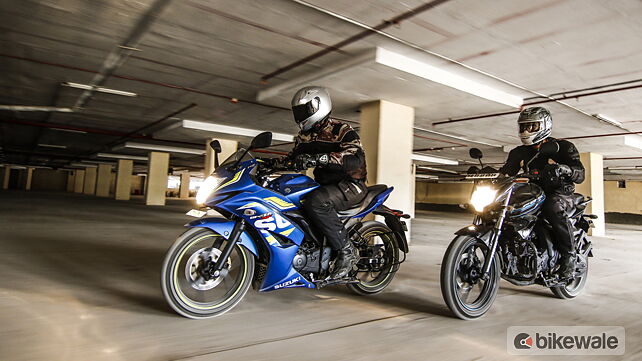












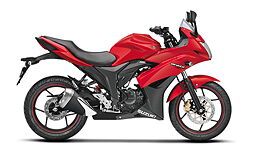
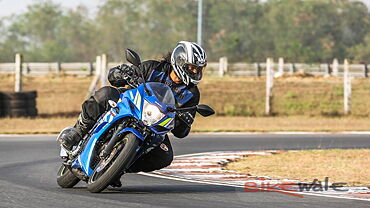


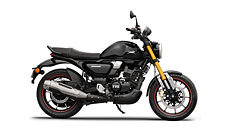
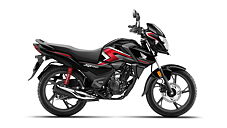
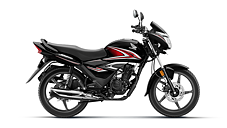

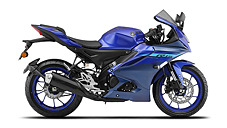
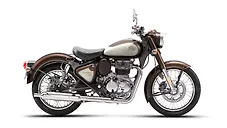
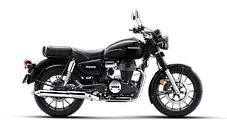
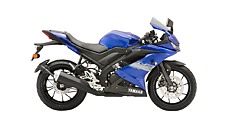
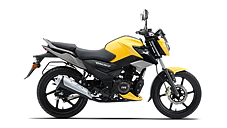
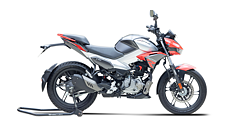
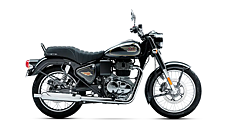
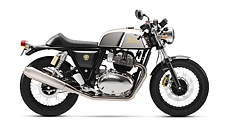
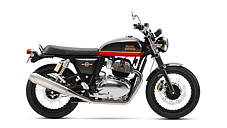
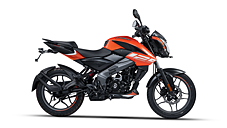
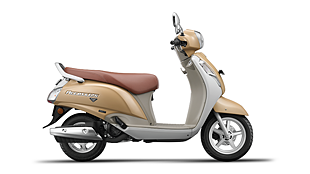






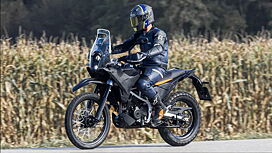
![KTM 390 Adventure X [2025] KTM 390 Adventure X [2025]](https://imgd.aeplcdn.com/272x153/n/cw/ec/190885/390-adventure-x-2025-right-side-view.jpeg?isig=0&q=80)